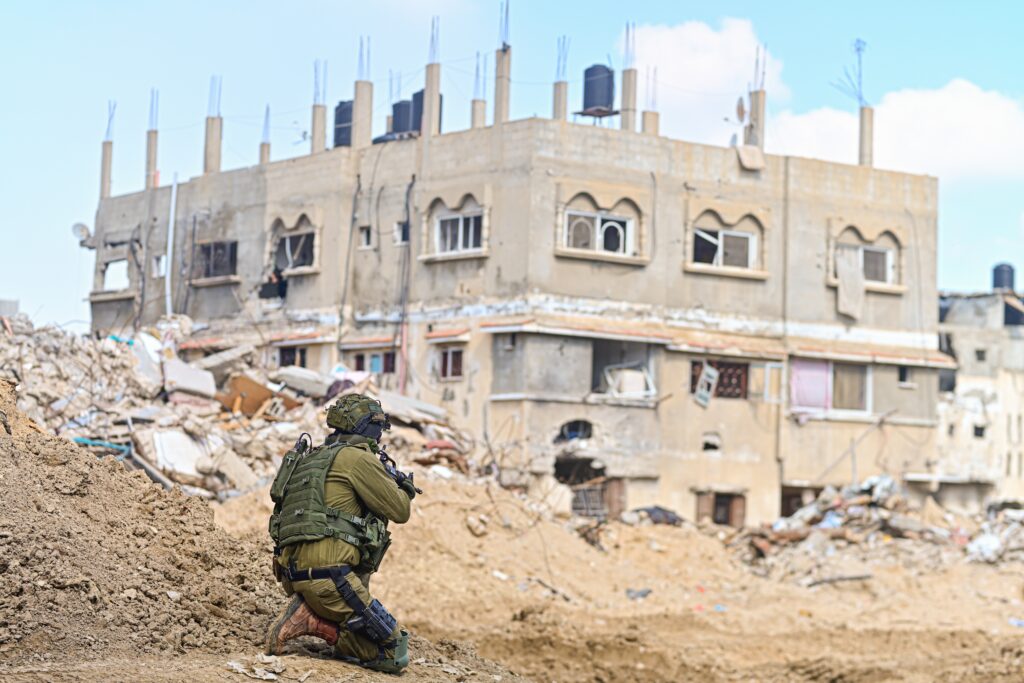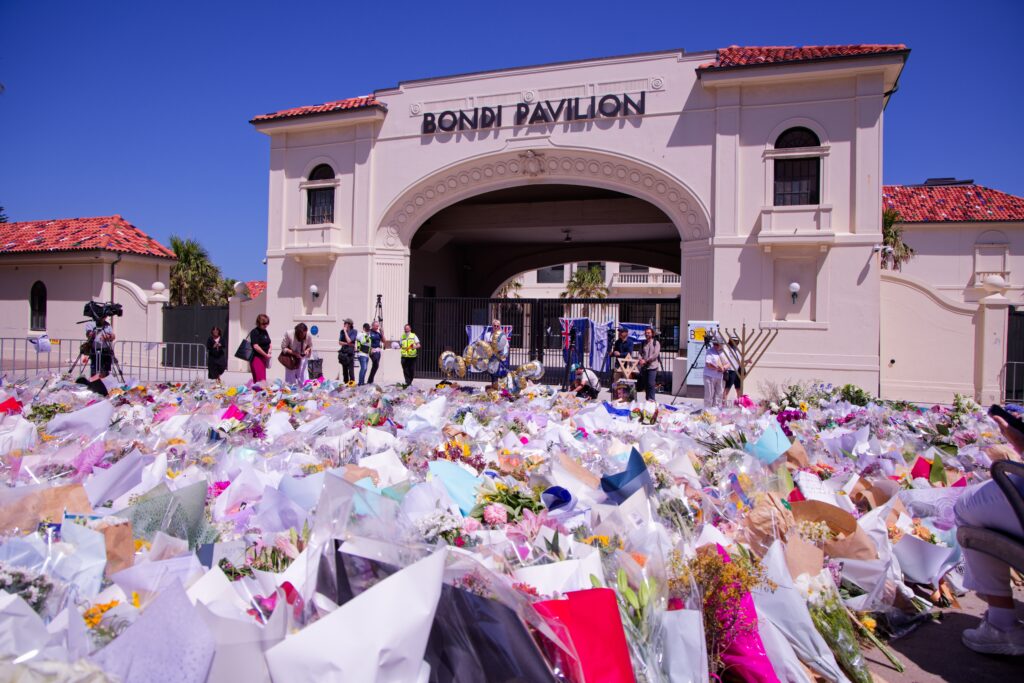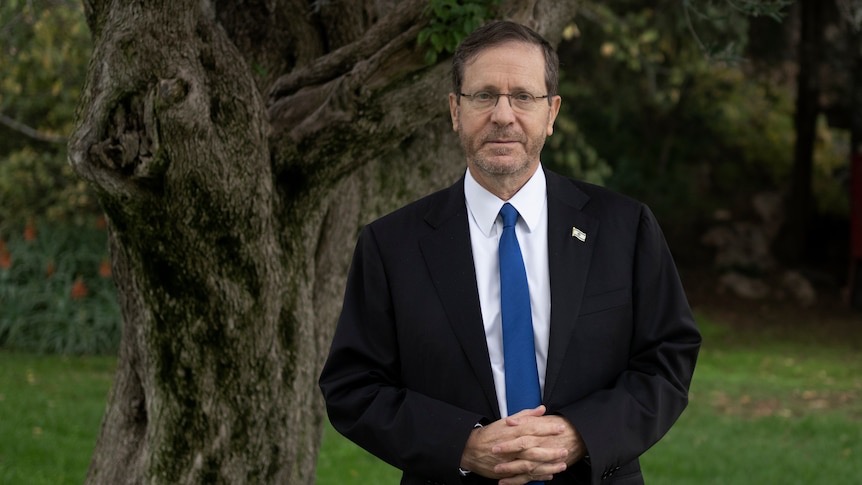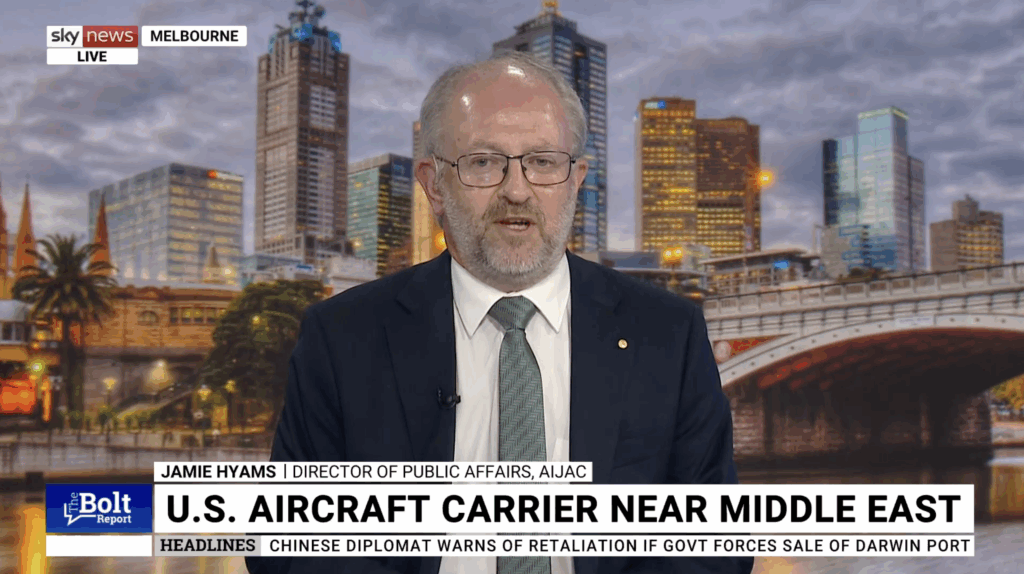IN THE MEDIA
The world continues to tell Israel what to do – is it fair?
August 17, 2025 | Justin Amler

Canberra Times – 17 August 2025
The world has never been shy in telling Israel what to do — in ways it would never dare tell other countries. It demands impossible standards that no nation has ever met.
In recent months, the chorus of condemnation has reached a fever pitch. Australian Foreign Minister Penny Wong argues that the majority of the “international community” wants an unconditional ceasefire. But since when does majority opinion make something right?
History says otherwise. In 1938, at the Evian Conference, dozens of nations debated the fate of Jews desperately trying to flee Nazi Germany. The overwhelming “consensus” was to do nothing, leaving the Jews to their fate. In 2002, in the midst of Israel’s campaign against Palestinian terrorism, Israel was widely accused of committing a massacre in Jenin — a massacre that never happened. At the time, UN Secretary-General Kofi Annan demanded that Israel cease its campaign and asked: Can the whole world be wrong? Yes. It can. It has.
And who exactly is this “international community” anyway? Fewer than half of UN member states are rated “Fully Free” by Freedom House. Many are dictatorships and theocracies — none living under the constant threat of annihilation — yet they lecture Israel on morality and restraint.
The hypocrisy extends to democracies like France, Britain, Canada, and Australia, which have never fought genocidal forces metres from their border, nor faced hostages being tortured in terror dungeons partly funded by their own aid. The same goes for recognising a Palestinian state: the mere act of recognition, as they plan to do at the United Nations General Assembly in September, doesn’t make it real.
None of these countries — democratic or despotic — have offered a viable plan to remove Hamas from power, yet every joint statement dictates what Israel must do while saying comparatively little about what Hamas must do. And when hostages and disarmament are mentioned, it appears more as an afterthought than a core demand.
With Hamas refusing to disarm or release the remaining 50 Israeli hostages, Israel now plans an operation in Gaza City to root out the last Hamas forces and possibly recover hostages. Again, the criticism is aimed at Israel, not at Hamas — which has rejected every ceasefire offer, refused to release the hostages and vowed to never give up power.
This war in Gaza was not Israel’s first choice, nor its second, nor even its third. In 2005, Israel left Gaza entirely, removing every Jew — both the living and the dead — and leaving behind homes and thriving businesses. The international community praised Israel for this action. But instead of embracing a future of peace, the Palestinian leadership chose terror. Businesses were burned, homes destroyed, and then the rockets came. Support for Israel vanished. What followed was a relentless campaign of violence, culminating in the October 7 massacre.
That day left a nation traumatised and a Jewish world reeling. Antisemitism surged: hostage posters torn down, Jewish businesses vandalised, Jews assaulted, synagogues attacked, and even kosher meals on airlines defaced with hateful slogans.
Meanwhile, the world continues to be fed a daily diet of Palestinian suffering, while Jewish suffering is largely ignored. Are Jews not entitled to the same empathy as others?
The aid narrative is equally twisted. Reports indicate that only a fraction of aid delivered inside Gaza reaches civilians, with Hamas known to divert supplies for its own purposes. The Gaza Humanitarian Foundation reports delivering over 115 million meals — yet no joint statement has acknowledged it. In one case, The New York Times had to clarify that the skeletal appearance of a Gazan child featured in a front-page image was due to a genetic condition, not famine. If the disaster was as overwhelming as claimed, why the need for staged or misleading imagery?
And the hypocrisy continues. Germany suspends certain arms exports to Israel yet insists Hamas must be destroyed. Egypt calls the Gaza crisis an “international shame” yet keeps its borders shut, preventing civilians from leaving.
And still few acknowledge the deep-rooted radicalisation in Palestinian society — a reality that makes talk of quick peace deals dangerously naïve. France halted a Gaza refugee program when it discovered one of the people it admitted made social media posts calling to “kill all the Jews.” Australia revoked the visa of a woman who had publicly celebrated the October 7 massacre — but only after initially granting it.
The international community, with the exception of the United States, has shown itself powerless, unwilling to confront a terrorist entity that does not respond to statements.
In a time when the world desperately needs Churchills, we are inundated with Chamberlains.
So now Israel faces the hardest challenge any nation can: fighting genocidal forces on its border and in the heart of the enemy’s territory – all while protecting its people and being pilloried by an international community blind to the complexity of the fight.
It is not an easy or popular fight, but for many Israelis, it’s not really a choice. As Israeli Prime Minister Netanyahu said, “We will not commit national suicide to get a good op-ed.”
Justin Amler is a policy analyst at the Australia/Israel & Jewish Affairs Council (AIJAC).
Tags: Australian Government, Gaza, Hamas, Israel, Palestinians





